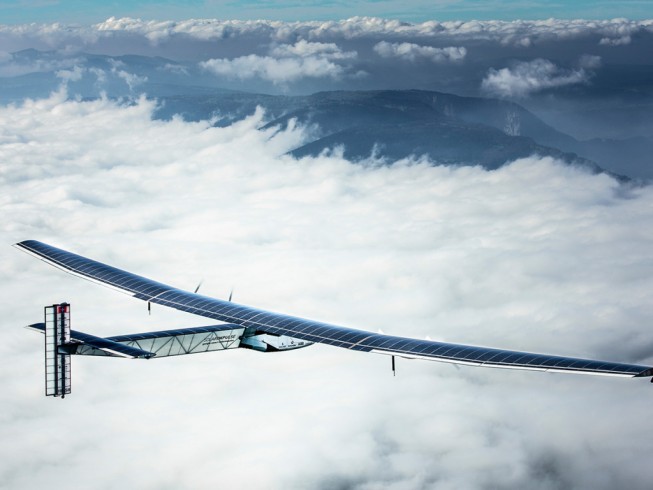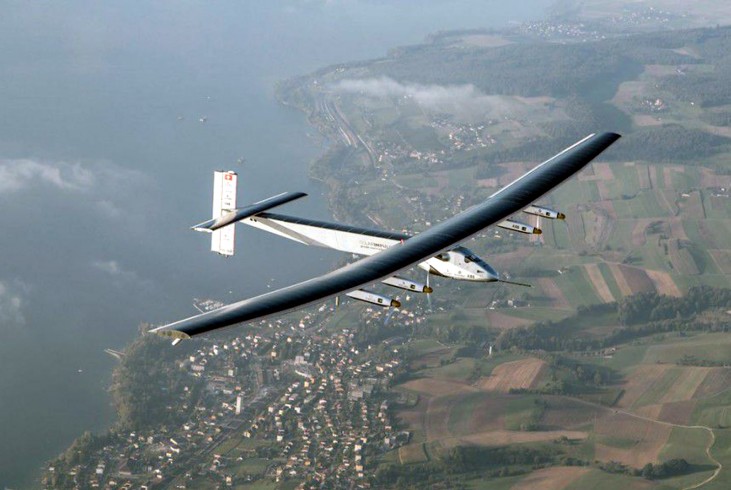(iTers News) - Little-known secondary battery and non-fossil fuel energy solution maker is playing a big part in the historical flying adventure of Solar Impulse 2, a solar energy-powered aircraft that set out on a 35,000km-long Abu Dhabi-to-Abu Dhabi globe-flying journey.
KOKAM Co. of Korea, a lithium polymer battery cell and ESS, or energy storage system maker said that its 160kWh-class lithium polymer battery pack is powering the engine of the Solar Impulse.
.
Designed by 3D design engineering company Dassault Systems of France, the Solar Impulse had successfully completed the fifth leg of its total 12-leg round-the-world solar flight project landing on Chongqing, China, on March 30.
Made of carbon fiber, the solar-powered ultra-light airplane took off in Abu Dhabi, UAE, on March 9 to start its first leg trip to Muscat, Oman.
It plans to fly a stretch of 35,000 km gulping not a single drop of oil, but just on 4 solar-charged lithium polymer battery systems, which were supplied by KOKAM Co.
The lithium polymer battery systems are being recharged by a grid of built-in 17,248 solar panels to power the engine.
Technology challenges facing KOKAM in designing the battery system was how to make them ultra -light enough to satisfy the design requirements of the ultra-light Solar Impulse 2, but at the same time energy-dense enough to power it.
The battery system’s per-cell energy density hits a whopping 260Wh/kg, more than two times as high as that of a high-capacity lithium ion battery. It is also durable enough to endure continuous cycles of long-hour discharging and recharging for a long while.
It is also durable enough to withstand high air pressure as well as high temperature.
The Solar Impulse 2 airplane is as long as Boeing 747, but just weighs 2.3 tons, It can fly at an altitude of 12,000fm cruising at a speed of 140km per hour during the daytime.



